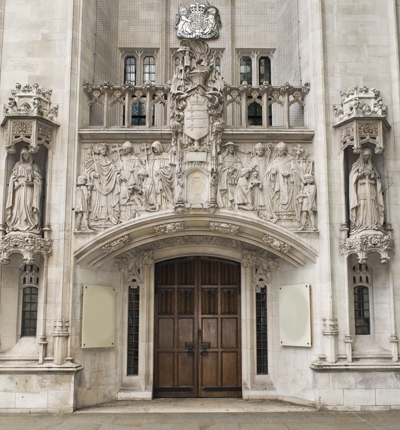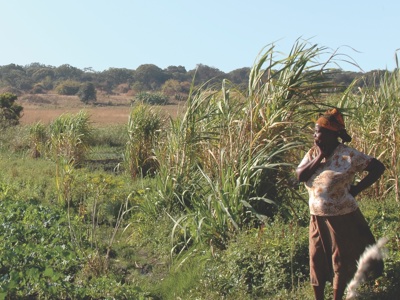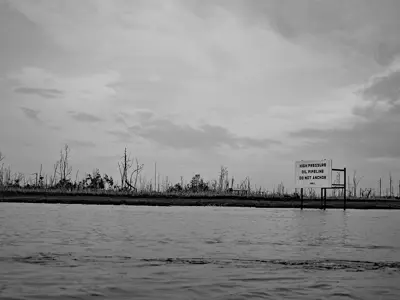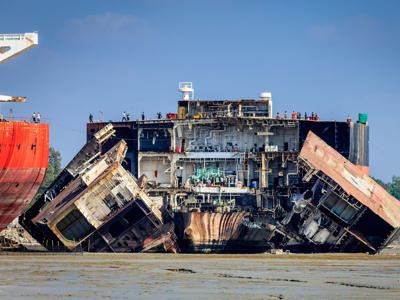
UK Courts leading the way in holding multi-nationals to account
Oliver Holland and Liberty Bridge discuss recent judgments from the UK courts that show multinational companies can be held accountable for harm caused to individuals by their operations.
Posted on 24 March 2021
For Zambian farmers, Nigerian fisherman and Bangladeshi shipyard workers, recent judgments from the UK courts have provided clarity that multinational companies can be held accountable for the harm caused to individuals by their operations. Claims that are based on whether a UK company can owe a duty of care to a foreign claimant even where damage has been caused by a third party is a rapidly evolving area of law – there is a global movement towards greater accountability for multinational corporations and these recent judgments show the UK courts are leading the way.
In the past the idea that companies owed a duty of care to local communities was not a boardroom concern. Now, corporate social responsibility policies may give rise to liability for environmental and human rights abuses and provide evidence of both proximity and control - whether or not there is a direct relationship between a company and a victim.
The case that led the way for greater accountability was Vedanta v Lungowe, a case concerning the alleged pollution of waterways in the Copperbelt region of Zambia. After a hard fought battle all the way up to the UK Supreme Court, the judgment held that the Claimants had a right to bring a case in the English courts against the UK domiciled parent company and their Zambian subsidiary. The Court found that a duty of care was clearly arguable due to the proclaimed control of the parent company over their subsidiary. A key principle from this judgment was the idea that a company can be held accountable for any proclamations of oversight and control whether or not that is in fact a reality.
Following Vedanta, claims brought on behalf of two Nigerian communities in Okpabi & Bille v Royal Dutch Shell also reached the UK Supreme Court – here the Claimants allege that Royal Dutch Shell is jointly responsible with its Nigerian subsidiary company for oil spills that they say have devastated their communities. The Supreme Court confirmed the principles in Vedanta and found that Royal Dutch Shell could owe a duty of care to the Claimants and therefore may be liable for the damage caused by the oil spills. The Court rejected the argument that because a company has a complicated corporate structure a duty of care is less likely to exist – if there is oversight and an element of control, there is an established duty of care.
The latest case to address the duty of care principle was in Begum v Maran on behalf of the widow of a Bangladeshi shipyard worker, Mr Khalil Mollah, against shipping company Maran (UK) Limited. Mr Mollah died while dismantling a huge ocean-going tanker on the beaches of Bangladesh. His wife, Mrs Hamida Begum, brought the case against the UK company, alleging that it had been instrumental in sending the vessel to Bangladesh where it knew, or ought to have known, that it was very likely workers would be injured or die when dismantling it. It sold the vessel for $16 million despite the terrible working conditions in Bangladesh. The Court recognised that despite Maran (UK) Limited attempting to hide behind the sale – including changing the name and flag of the vessel and selling it via a third party ‘cash buyer’ – the company may still owe a duty of care to the Claimant because it may have been responsible for creating a danger by selling the vessel to the beaches in Bangladesh.
In these recent judgments the Courts have repeatedly shown that a duty of care may extend to anyone who is at foreseeable risk of harm due to a corporation’s operations. This paves the way for ‘supply-chain’ cases where multinationals set standards for and have oversight over supplier operations. The English courts have shown that they are not afraid to hold multinationals to account and ensure that wherever a claimant is domiciled they have the right to access justice.
Multinationals must review the impacts and foreseeable risks of their operations or face accountability in the English Courts.
This blog was first published as an opinion editorial on the Thomson Reuters website
Find out more

International
Leigh Day represents people from around the world in fighting for their rights against corporations and governments. We have secured justice for tens of thousands of women, men and children

Vedanta
Leigh Day represented 2,577 Zambian villagers who took action against UK based Vedanta Resources plc and its Zambian subsidiary Konkola Copper Mines





